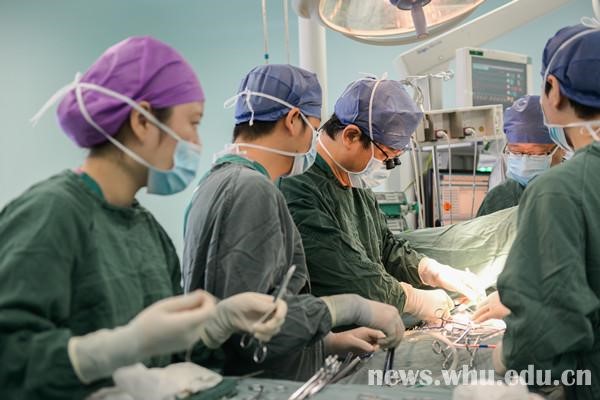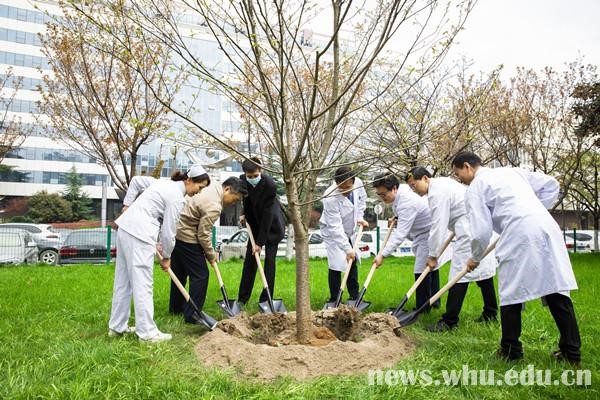The heart is the "engine" of the human body while aorta is its "main channel". The importance of both is self-evident. Mr. Li from Shanxi, was pushed to the edge by his poorly-functioning heart and aorta. This man was suffering from dilated cardiomyopathy, aortic sinus aneurysm, Marfan syndrome and other dangerous diseases. Fortunately, half a month ago, a team led by Wang Zhiwei, a cardiovascular surgery professor in WHU Renmin's Hospital, successfully performed an ‘orthotopic heart transplantation with an ascending aorta, aortic arch, descending aorta combined operation’ meant to save Li’s life.

According to the available literature, this kind of operation had not been reported in Chinese mainland before, and only two cases have been reported in Taiwan and the United States.
Mr. Li, 38, suffered from severe dilated cardiomyopathy, which caused his heart to expand to four times its normal size, taking up nearly the entire chest. He also suffered from cardiac failure. The aorta was severely dilated to 8 cm in diameter, putting it at risk of sudden death from rupture. To save his life, both his heart and aorta had to be replaced at the same time.
On March 13, Wang's team first performed a heart transplant. During the operation, the patient's heart stopped beating and the blood supply to the whole body was undertaken by the extracorporeal circulation machine. It took 70 minutes for doctors to quickly remove the nearly ineffective heart, implant a healthy one and sew together major blood vessels.
However, after the heart transplant, greater danger and difficulty occurred during the joint transplanting of the ascending aorta, the aortic arch, and the descending aorta . Wang explained that if the aorta, the "main channel", shut down, the blood of the important viscera of cerebrum and the whole body would stop instantly, and the important organs, starved of oxygen and blood, will enter a state of exhaustion very quickly. At this point, they were racing against time.
Staff meticulously operated the artificial heart-lung machine to oxygenate and cool the patient's blood, leading to a plummet from 37 to 25 degrees Celsius.. With the patient's breathing and heart stopping completely, Wang successfully completed the ascending aorta, aortic arch transplant in merely 19 minutes. Normally, it takes 30 minutes.
The key to the success of the operation lies in whether or not the heart of the patient in deep hypothermia starts beating again after the transplant. Staff resumed the delivery of blood to the patient, and the blood temperature gradually climbed to 37 degrees Celsius. The operation turned out to be a complete success as the new heart gradually resumed beating and blood began to circulate autonomously in the patient’s body.

The “Heart Rebeating Tree” planted by the doctors and the patient after recovery
Rewritten by Cao Siyi, edited by Zhang Shiqi, Shen Yuxi and Hu Sijia